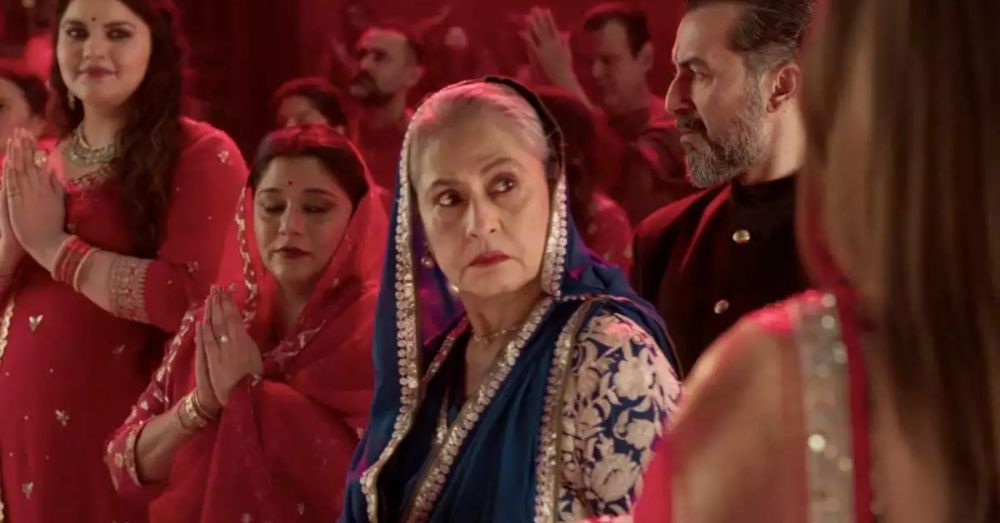The gavel’s sound in the Court resonated not only within the courtroom but also in wider conversations about social standards and the changing face of equality in modern India.
Obligatory For Woman To Serve Elderly Mother-In-Law, It Is A Part Of Indian Culture; Demand To Live Separately Is Unreasonable’: Jharkhand HC
The latest news reports state that the Jharkhand High Court in India has noted that serving elderly people (i.e., mothers-in-law or grandmothers-in-law) is both a cultural custom and a duty for Indian women. In its ruling, the court cited Article 51A of the Indian Constitution, which addresses citizens’ basic obligations, among which is “to value and preserve the rich heritage of our composite culture.” It further cited passages from the ancient Hindu text called Manusmriti that describe the obligations and responsibilities of each member of society. It described taking care of one’s elderly in-laws as a customary practice in Indian culture.
What happened?
A husband’s appeal against a family court order directing him to give his wife Rs 30,000 and his son Rs 15,000 a month was being heard by the court. The woman declined to live with her husband without a valid reason, so the High Court determined that she was not liable for maintenance.
In 2018, the wife had moved out of her married house. The husband then claimed that the wife had forced him to leave the family home and had refused to care for his mother and maternal grandmother in his filing for judicial separation under the ‘Hindu Marriage Act’.
Conversely, the woman claimed that she was tortured and subjected to cruelty by her husband and in-laws in exchange for a dowry. She did not, the court ruled, have a “legitimate reason” to live apart from her family.
Are we heading backward by mandating a patriarchal mindset?
The news has highlighted the delicate and complicated nature of gender dynamics within the judicial system. A woman has her own life to live. She has her parents, her professional goals, and her health to take care of. These kinds of “obligations” totally ignore the commitments a woman may have. Doesn’t the mandate contradict laws protecting women, like the Domestic Violence Act, which works to safeguard daughters-in-law’s rights and welfare in married households?
It’s especially difficult in situations when these responsibilities could be used as an excuse for disrespect. They could lead to a daughter-in-law tolerating exploitation, harassment, and physical or emotional abuse. Women can find it extremely difficult to exercise their legal rights when cultural expectations conflict with these legal safeguards.
What is expected from society as an Indian woman?
Society’s guidelines are shaped by the long-standing traditional gender roles in India. A woman is responsible for taking care of the children and handling household chores.
A man is expected to provide the majority of the family’s income. There is the idea that girls should be caring and obedient, while boys should be courageous and assertive. Without a doubt, a majority of the population supports the idea that women should primarily be caregivers and that men should be the breadwinner of the family.
A survey by the Pew Research Center (2022) included 29,999 Indian adults from 26 states and three union territories. The results concluded that although 62% support shared childcare duties, 34% continue to support women serving as the primary caregivers. Furthermore, 54% are in favor of both sexes having incomes. The study revealed that Indian men tend to hold slightly more conservative opinions than women.
Society and its expectations of women need to change. These norms can be problematic because they perpetuate inequality within the familial framework by placing an undue burden on women. Regrettably, we run the risk of sustaining an atmosphere that normalizes abuse and exploitation by forcing adherence to conventional gender roles.
What does this mean for the future of women’s rights?
The Manusmriti and cultural norms are invoked in the court’s ruling affecting specific instances while underscoring broader problems with gender inequality. A precedent of this nature can lead to an unequal power relation in families and society. The ruling strengthens discriminatory behaviors. It feels like the initiatives to advance women’s rights are hit by a bulldozer.
We as a society must acknowledge and preserve social norms. But we should also prioritize upholding the values of human rights, gender equality, and individual autonomy. It is 2024 and women need to have the freedom to choose their education, career, personal well-being, or whatever they wish. The HC decision has sparked a wider conversation about the consequences of such rulings for women’s rights. What is your take on the matter?
Also published here.
